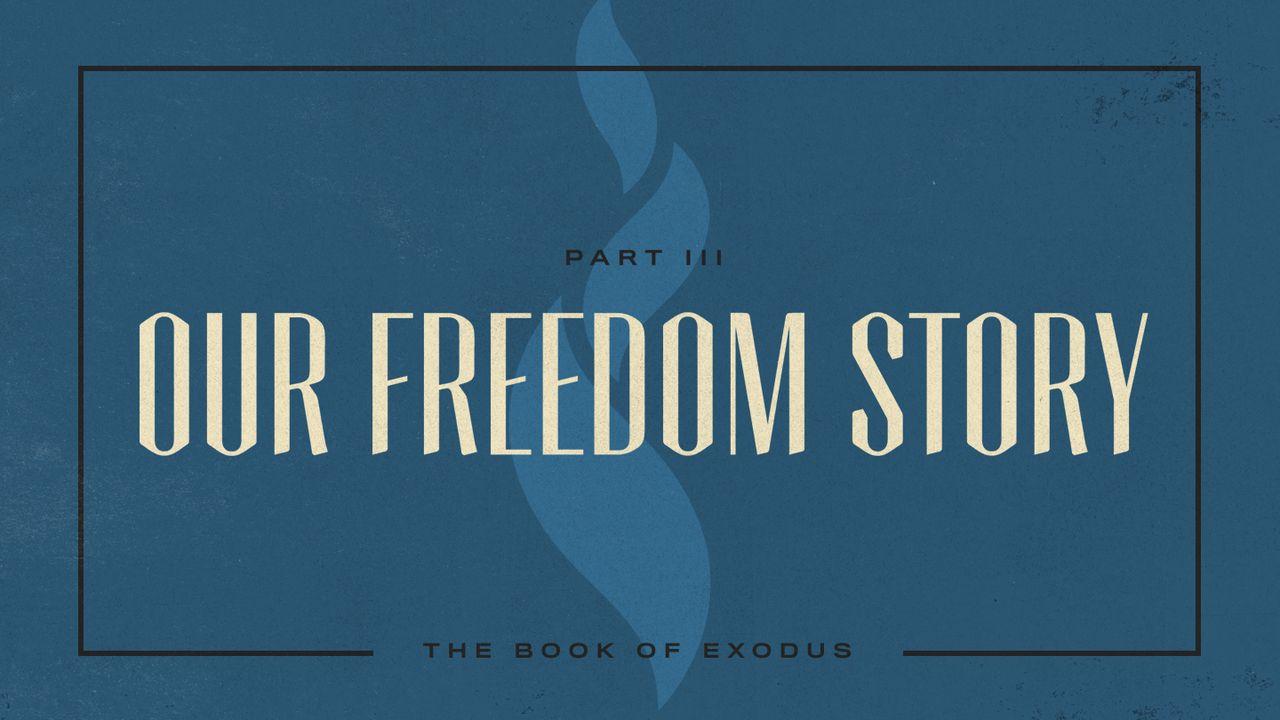Exodus: Our Freedom StoryExemplo

Vulner-able
By Pastor Dan Hickling
“Now the Lord spoke to Moses, saying: ‘Speak to the children of Israel, that they turn and camp before Pi Hahiroth, between Migdol and the sea, opposite Baal Zephon; you shall camp before it by the sea. For Pharaoh will say of the children of Israel, “They are bewildered by the land; the wilderness has closed them in.” Then I will harden Pharaoh’s heart, so that he will pursue them; and I will gain honor over Pharaoh and over all his army, that the Egyptians may know that I am the Lord.’ And they did so.”—Exodus 14:1–4 (NKJV)
There’s important insight into the ways of God in the instructions He gives to Moses here. In context, Moses has just led the Hebrew people (roughly two million men, women, and children) out of Egypt. Pharaoh finally released his grip on them, and they were on their way to the land God had promised their founding fathers, which was then known as the region of Canaan. It seemed like a happy conclusion to the plague-ridden conflict that must have seemed endless for all involved.
But then, God does something very unexpected and deliberate. It would have made all the sense in the world for them to take the direct northly route to Canaan, which ran parallel to the coastline of the Mediterranean Sea. However, the Lord instructs Moses to go in a different direction and stop at the edge of the Red Sea which wouldn’t seem to make much sense because it would mean they couldn’t move ahead and were vulnerable to being overtaken.
Why?
Well, one reason God tells Moses is to provoke Pharaoh into pursuing them! The Lord knew that when the reports came to Pharaoh that his workforce had put themselves in such a vulnerable position, it would be too much for him to resist. Pharoah would marshal his military might and pursue the people who had just escaped his tyrannical rule. So, the immediate purpose for taking this route is to provoke Pharaoh to chase after them.
Okay, but this still leaves us with the question as to “why.” Why draw Pharaoh out like this? The answer we’re given is so God would gain honor and that all of Egypt would be left with an undeniable testimony of who He is. We’ll see what that exactly looks like as the narrative unfolds, but for now, let’s ponder this powerful principle: God puts His people in vulnerable positions so He can reveal more of who He is.
One example would be the man who had been born blind in John chapter 9. God had ordained for him to come into this world without the gift of sight, a most vulnerable state of being! Immediately, we wonder why the Lord would allow such a thing—and question His fairness and even love for this soul. Yet Jesus tells us that this man’s vulnerability was the backdrop that would reveal God’s glory in ways that would not be seen otherwise. The blindness made the healing possible, a healing that has brought comfort and hope in Jesus to countless others.
Rest assured, God is going to lead us into vulnerable positions in this life. It may be the loss of health, wealth, position, or any number of things we derive strength and security from. But we can be just as sure that His reason for doing so is for the purpose of His honor and glory being revealed through us. For it’s in our vulnerability that His ability is most powerfully demonstrated!
Pause: Why did God lead Israel by a route that didn’t seem to make much sense?
Practice: Apply this principle to your current set of circumstances.
Pray: Father, it’s so easy for me to resist the idea of being vulnerable. I want to fortify myself against the trials of life. Help me to embrace Your good purpose and plan for leading me into those places, and align my heart with Yours to care more about Your glory than my comfort. Amen.
Escritura
Sobre este plano

In part three of this seven-part study through the Book of Exodus, we'll explore Exodus 14–17.
More

